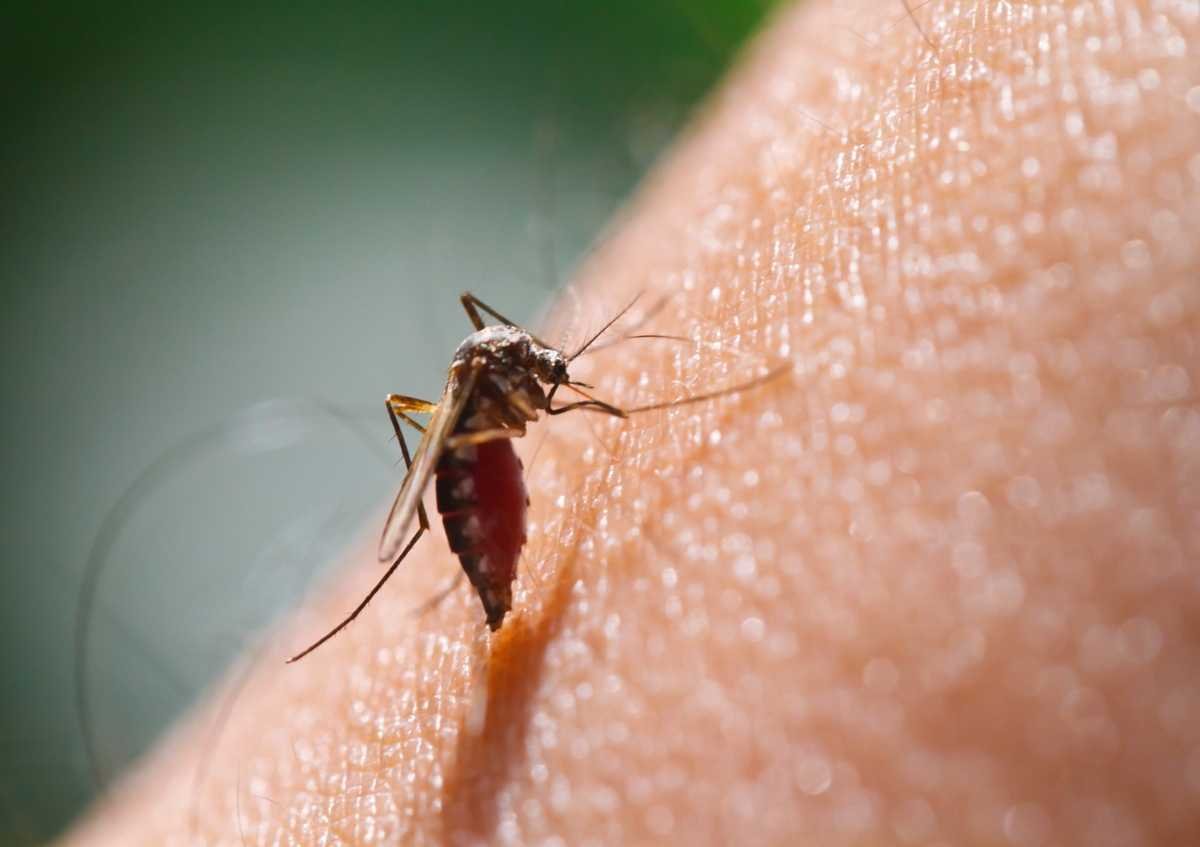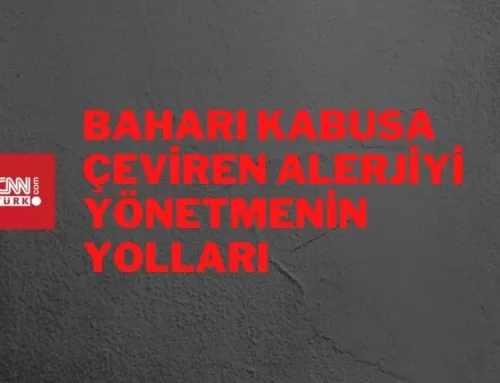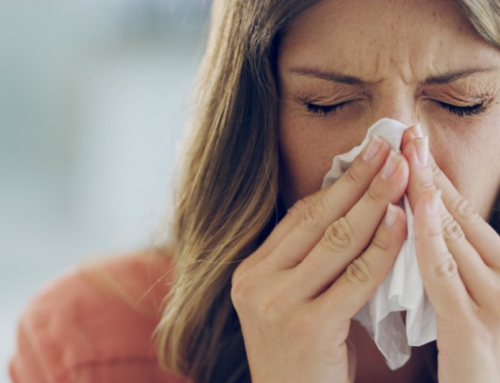CNNTÜRK – June 14, 2021
Almost everyone is susceptible to mosquito bites. However, in some people these bites can cause an allergic reaction and the symptoms can be severe. It may be beneficial to use mosquito repellants and take some precautions to prevent mosquito allergy. Founder of Istanbul Allergy, Allergy and Asthma Association President Prof. Dr. Ahmet Akçay talked about mosquito allergies and warned.
Most bites occur at dusk or dawn, when mosquitoes are most active. While male mosquitoes feed only on nectar and water, female mosquitoes feed on blood and female mosquitoes are responsible for bites. Female mosquitoes need blood to produce eggs. Because mosquito eggs need iron to mature.
As the mosquito feeds, it injects saliva into your skin. Your body responds to saliva, which causes swelling and itching. When mosquitoes bite infected people and animals, they become infected with germs such as viruses and parasites.
There are many proteins in the saliva of mosquitoes that are allergic. When the mosquito bites, the substances in its secretions release substances that prevent blood from clotting. It also causes the release of itching histamine from mast cells, which can cause itching. The immune system sometimes responds more severely to substances in mosquito secretions. When stung by a mosquito it triggers an allergic response which makes my immune system respond violently. Mosquito allergy is called “Skeeter Syndrome”.
- Symptoms of Mosquito Allergy
- Who Do Mosquitoes Bite More?
- Allergic reactions can be serious!
- Diagnosing Mosquito Allergy
- Treating Mosquito Allergy
- Is Allergy Vaccine Taken for Those Who Have Mosquito Allergies?
- What problems can mosquito bites cause?
- Mosquito-borne diseases
- Can Mosquitoes Cause Coronavirus Transmission?
- How Can We Take Precautions Against Mosquito Bites?
- As a result:
Symptoms of Mosquito Allergy
Red bumps of 2-10 mm in size occur in the bitten area. Some individuals may experience local reactions greater than 2 cm shortly after bites. The top of the reactions that occur may collect water after a while. Some people may also have a fever with this large local reaction. These children are healthy children without any other disease. Major local reactions usually heal within 3-10 days. Rarely, some children may develop systemic allergic reactions such as acute generalized urticaria, serum sickness, and allergic shock (anaphylaxis).
Who Do Mosquitoes Bite More?
How do mosquitoes choose their victims to bite? It bites some of us more, but not some of us. According to studies, mosquitoes are more common;
-Men,
-Pregnant women,
-People who are overweight or obese,
-People with -0 type and AB blood group,
-People who have been exercising recently,
-People who emit higher amounts of uric acid, lactic acid and ammonia; some sweat odors are more attractive to mosquitoes,
-Those who sweat a lot,
– Those with eczema,
-It bites people who have had beer recently.
Also, since mosquitoes are affected by the heat, wearing dark colors can increase your chances of being bitten. This is because dark colors absorb heat. People who live in humid, tropical climates or in swamps are also at greater risk for bites.
Some people, such as young children, have an increased risk of allergic reactions. People who are allergic to certain components of mosquito saliva, such as proteins and antimicrobial agents, may be at higher risk of developing Skeeter syndrome.
Allergic reactions can be serious!
Significantly larger mosquito bites can be one of the signs of a severe allergic reaction. These symptoms may include:
Wide area of itching
Lesions,
Bruises near the bite site,
lymphangitis or inflammation of the lymph system,
Hives at or around the bite
Anaphylaxis is a rare, life-threatening condition that results in throat swelling and wheezing.
Seek emergency medical attention if you notice any of the following symptoms, as they may be signs of a more serious condition:
Fire,
Severe headache,
Nausea or vomiting,
Debris,
Tiredness,
Blurred consciousness,
Neurological changes, such as muscle weakness on one side of your body.
Diagnosing Mosquito Allergy
A detailed medical history and examination should be performed in diagnosing mosquito allergy. Mosquito allergy can be diagnosed by blood or skin allergy tests in patients with major local or systemic allergic reactions. However, blood and skin allergy tests do not show allergies. Therefore, being negative does not mean that there is no mosquito allergy. People who have a normal reaction to a mosquito bite do not need to do allergy tests. Children who develop systemic reactions should also be investigated for immunodeficiency.
Treating Mosquito Allergy
The first thing to do when a mosquito bites is to wash the bitten area with soap and water.
Apply an ice pack for 10 minutes to reduce swelling and itching. Reapply the ice pack as needed.
-Apply a mixture of baking soda and water that can help reduce the itching response.
-Mix 1 tablespoon of baking soda with water until it reaches a paste-like consistency.
-Apply the paste to the mosquito bite.
-Wait 10 minutes.
– Wash the paste.
If there are signs of mosquito allergy, antihistamine-containing drugs should be given orally, and cortisone creams should be applied to the area where swelling and redness occur for 5-10 days. In systemic reactions, oral cortisone should be given for 5-7 days. Antipyretic drugs should be given in large local reactions with fever. Antibiotics should not be used unless there is an infection condition.
The most effective method of treating mosquito allergy is to avoid mosquitoes. However, this is not always possible and some reactions may require drug therapy.
Is Allergy Vaccine Taken for Those Who Have Mosquito Allergies?
Mosquito allergies do not usually cause fatal reactions. Reaction to mosquito bites decreases with increasing age and recurrence of mosquito bites. Therefore, allergy vaccination against mosquito allergies is rarely required.
What problems can mosquito bites cause?
If mosquito bites are not treated, they may become infected due to scratching their bites. An infected bite may appear red, feel hot, or a red line may spread out of the bite. It would be helpful to see a doctor if symptoms worsen.
Mosquito-borne diseases
• Mosquitoes spread germs through their bites. Viruses such as West Nile and Dengue fever, and parasites such as malaria can make you sick.
• When a mosquito bites an infected person or animal, it becomes infected with a virus or parasite. An infected mosquito can spread germs to other people or animals through a bite.
Can Mosquitoes Cause Coronavirus Transmission?
The following question comes to everyone’s mind, as mosquitoes cause serious diseases by carrying viruses and parasites. Do mosquitoes contribute to the transmission of coronavirus? It has been reported in studies that mosquitoes do not contribute to the meeting of the Coronavirus and do not live in the mosquito’s body.
How Can We Take Precautions Against Mosquito Bites?
You can take the following precautions to avoid mosquito allergy:
You can wear long-sleeved blouses and pants to avoid skin exposure.
You can stay away from bright clothes that will attract mosquitoes.
You should stay away from stagnant water areas.
You can use drugs that keep mosquitoes away under the control of your doctor.
You should avoid strong perfumes.
You can try using insect repellent products in your home.
Mosquito nets can be used on baby carriers or strollers in areas where your baby may be exposed to insects.
Install mosquito nets on windows. Using an air conditioner can be helpful.
As a result:
Mosquito allergy is rare, but an allergic reaction can be serious enough to require emergency medical treatment. Diagnosing and managing your allergy is essential in this context. When mosquito allergy is properly managed, it does not cause any long-term illness or lifestyle interference. Just be aware of mosquitoes around you and have the right tools on hand in case you get bitten.






